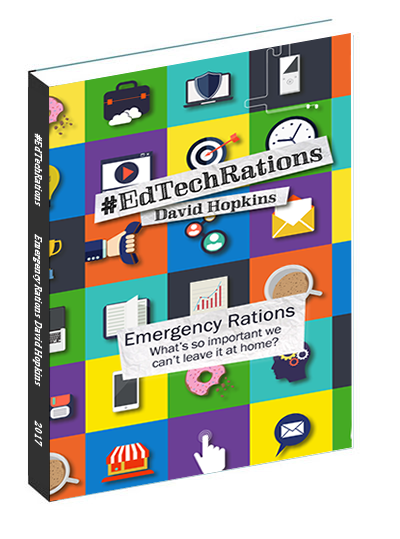What is ‘Ubiquitous Computing’? #edtech
Amit Singhal, Google VP and Senior Search Engineer said, in an article in The Telegraph this week (“Google develops computer inspired by Star Trek“):
“Why should someone stop their conversation because they’re missing a tiny piece of information that you need to take that conversation further?” said Mr Singhal. “You have to pull out your phone. You have to unlock the phone. You have to type. Already you have lost valuable seconds and the conversation has become unnatural and awkward.”
And this is where Google thinks computing, and the power/operation of ‘searching’ for content, is heading – that the devices in our pockets, lives, even glasses (Google Glasses?) will be able to follow our conversations and be in a position to provide answer to our questions as we ask them, not after we perform the time consuming search.
While this may work for a dinner party or conservation in the pub, how will this affect the relationship between student and educator? Used properly and in context we can engineer situations where the students are required to not only find the content but also learn to form the question properly in the first place (isn’t this where we ought to be already?), as well as be able to feed their findings and work back into the world wide web to expand the breadth of knowledge and context for this information, for the next person to use.
What kind of impact does this have on the kind of projects or assessment that we ask students to engage in? If the answers are presented to the students before a full understanding of the issues, problems, or scope of work is realised then are the students actually learning anything other than how to work the system? Is ‘ubiquitous computing’ good for education? In recent years we’ve seen developments in technology enhanced learning (TEL) abound in unforeseen speeds and directions with new mobile computing, and TEL has risen to the challenge and embraced them – for this I’m sure we’ll work with these developments, but part of me is thinking that, for the sake of progress, we’re making it too easy?
What do you think?
Here are some further links that are worth reading in an around ubiquitous computing:
“The idea behind ubiquitous computing is to surround ourselves with computers and software that are carefully tuned to offer us unobtrusive assistance as we navigate through our work and personal lives.”
“Moreover, our definition of ubiquitous computing includes the idea that both teachers and students are active participants in the learning process, who critically analyze information, create new knowledge in a variety of ways (both collaboratively and individually), communicate what they have learned , and choose which tools are appropriate for a particular task.”
Towards Security and Privacy for Pervasive Computing
“The shift to the pervasive computing paradigm brings forth new challenges to security and privacy, which cannot be addressed by mere adaptation of existing security and privacy mechanisms. Unless security concerns are accommodated early in the design phase, pervasive computing environments will be rife with vulnerabilities and exposures.”
Ubiquitous Computing in the Classroom: An Approach through Identification Process
“What is really sought is for the user to concentrate on the task rather than on the tool. The Ubiquitous Computing vision proposes the invisible computer and yet at the same time it also advocates its omnipresence, as it approaches users with more intuitive and natural interfaces. The main goal is to distribute the computer around the workplace, creating more versatile devices for solving simple processes, using wireless communications – all this as an aide to us in our daily activities. Thus we will transfer computer capabilities to the environment.”
“This paper reports on preliminary findings from an ongoing study of teaching and learning in a ubiquitous computing classroom. The research employed mixed methods and multiple measures to document changes in teaching and learning that result when teachers and students have access to a variety of digital devices wherever and whenever they need them. It identifies ways in which ubiquitous computing environments can support both individual and social construction of knowledge, and the role that unique representations of knowledge supported by a variety of ready-at-hand digital devices can play in such support.”


















The growth in the field of Ubiquitous Computing has been mainly driven
by the advancement in Technology. The revolution of smart phones and
tablets, advancement in communication networks coupled with the wireless
and broadband technologies, sophistication in the development of
sensors, seamless integration through SOA (Service Oriented
Architecture) and the emergence of Cloud Computing for the highly
available and resource pooling capabilities taking it closer to the
ubiquitous computing goals.
Check out this post on how Ubiquitous Computing is making a Smarter World http://www.thbs.com/blog/ubiquitous-computing-living-in-a-smart-world